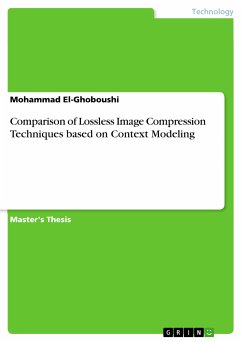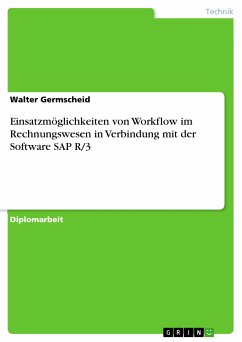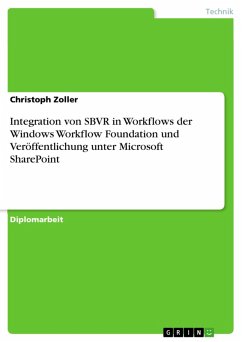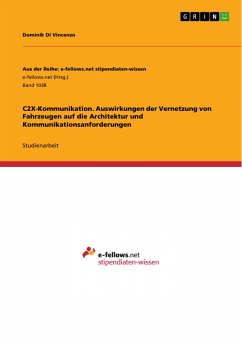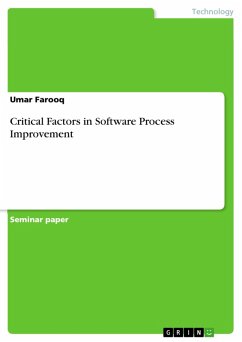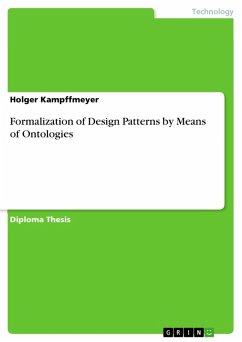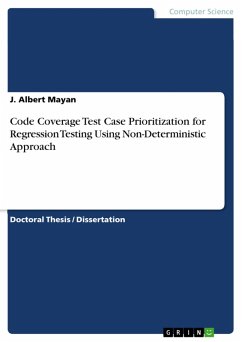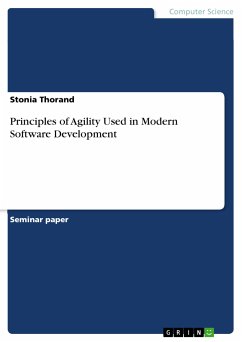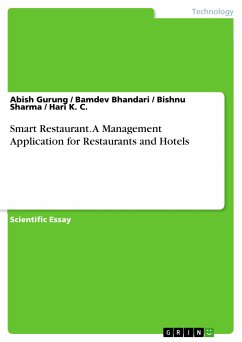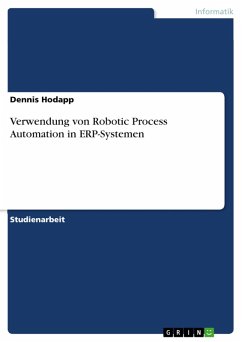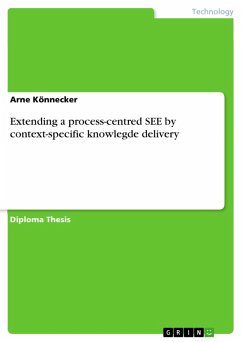
Extending a process-centred SEE by context-specific knowlegde delivery (eBook, PDF)
Versandkostenfrei!
Sofort per Download lieferbar
Statt: 47,95 €**
36,99 €
inkl. MwSt. und vom Verlag festgesetzt.
**Preis der gedruckten Ausgabe (Broschiertes Buch)
Weitere Ausgaben:

PAYBACK Punkte
0 °P sammeln!
Diploma Thesis from the year 2000 in the subject Computer Science - Software, grade: sehr gut, University of Kaiserslautern (Department of Computer Science - Artificial Intelligence / Knowledge Based Systems Group), language: English, abstract: Process-centred software engineering environments (PSEE) [Garg96] are acknowledged tools to help in planning, managing and executing today's software projects. Their support is mainly focused on the coordination of the different activities within a project following a defined development process, i.e. focused on project coordination. That is why the sup...
Diploma Thesis from the year 2000 in the subject Computer Science - Software, grade: sehr gut, University of Kaiserslautern (Department of Computer Science - Artificial Intelligence / Knowledge Based Systems Group), language: English, abstract: Process-centred software engineering environments (PSEE) [Garg96] are acknowledged tools to help in planning, managing and executing today's software projects. Their support is mainly focused on the coordination of the different activities within a project following a defined development process, i.e. focused on project coordination. That is why the support for the individual participating agent in performing tasks (which have been assigned to him) is mainly restricted to provide access to input products for a task and to tools to create defined output products. Main tasks for a software project are the creation of a project plan and the enactment of this project plan in order to deliver certain software products. Planning and enactment tasks require access to multiple information related to the current project context. If no direct access can be supported, e.g., in the form of defined input products for a task, agents are confronted with issues to identify and find suitable information. This information can be distributed, heterogeneous, unstable (i.e. being prone to changes), hard to find, and the retrieval task can disturb the current workflow as it is commonly not a defined part of the development workflow. Even if suitable information does exist agents are not always aware of the existence and where to find it. The big issue of reusing experience [Basili91] in form of documented descriptions becomes obsolete if agents do not know that they exist and how to integrate it. Another main stream which has been adopted from the field of artificial intelligence to the field of software development is knowledge management (KM) [Wiig93]. Different concepts in software development use its foundations to build knowledge bases like organisational memories (OM) [Ungson91], experience factories (EF) with experience bases (EB) [Basili94], case-based reasoning systems (CBR) [Althoff98] and derive concepts for learning software organisations (LSO). They encompass mechanisms which help to capture and make information and knowledge accessible and (re)usable. [...]
Dieser Download kann aus rechtlichen Gründen nur mit Rechnungsadresse in A, B, BG, CY, CZ, D, DK, EW, E, FIN, F, GR, HR, H, IRL, I, LT, L, LR, M, NL, PL, P, R, S, SLO, SK ausgeliefert werden.




